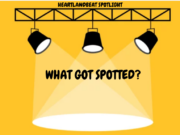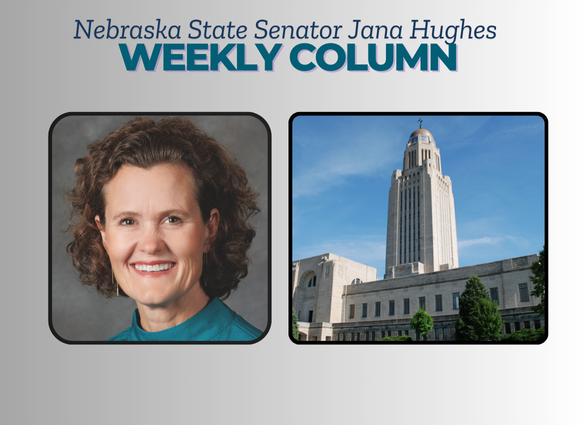It has been another busy week in the Nebraska Legislature. On Monday we held debate on LB170, which would have removed some current sales tax exemptions, increased taxes on tobacco and vaping products, and provided additional property tax relief.
For context, when Nebraska instituted its first sales tax in 1967 after eliminating the state-level property tax, the sales tax rate was 2.5%. The rate steadily grew to 5.5% today as more and more special interest groups lobbied for exemptions. City and county governments, public schools, and other local taxing authorities sustain the majority of their budget with property and sales taxes. The continual erosion of the sales tax base combined with increased valuations, unfunded mandates, and a lack of funding from the Legislature has resulted in more and more of the state’s overall budget being shifted to local property taxes.
Because a number of Senators were unwilling to remove exemptions for non-essential services, such as chartered jet services, limousine and luxury vehicle rentals, private pool cleaning, and similar services, the bill was amended so that those items will continue to be exempt from sales tax. The revised bill then only contained tax increases in cigarettes, which had not been raised in 24 years; an increase in the tax on vape products to a 40% wholesale tax – the national average wholesale tax on vape is 56%; and removing the sales tax exemption for online sales of cigars – brick and mortar stores in Nebraska are subject to a 20% tax on cigars while online sales from out of state have no tax. The revenue raised from these would have gone toward the front-loaded property tax credit that comes directly off of your annual property tax bill.
Ultimately, LB170 was three votes short of advancing. The demise of this bill resulted in the elimination of the last prospect for property tax relief for the session. I have supported multiple bills the past two years that led to the total property taxes collected statewide to drop for the first time in 26 years last year. However, without any additional action, property taxes are on track to rise by $285 million this year. I am deeply disappointed that more of my colleagues are not committed toward annual property tax relief.
On Tuesday, we considered LB677, which was a bill to implement a regulatory framework for the medical marijuana legislation passed on the ballot this past November. After 8 hours of debate, LB677 did not have the votes to advance. Disagreements over the details eroded support for the bill. The language passed via the ballot initiative, with its less specific regulatory language, now becomes law. The Nebraska Attorney General Mike Hilgers has challenged the voter-approved medical marijuana bill in court. This court challenge has yet to be heard by the courts. The outcome for the voter approved ballot initiative is uncertain at this point.
Wednesday we had a large number of bills up for debate. One of the bills on the agenda was LB303, which I had introduced. LB303 in its original form would have dropped the maximum cap that public schools could levy in property taxes. This would have resulted in reduced property taxes while increasing the state’s contribution to fund education in Nebraska. At the end of the day the Legislature was unable to identify any additional spending cuts beyond those necessary to fill the budget shortfall we faced at the beginning of the year.
There is one part of LB303 that required no additional spending to implement – the creation of the School Finance Reform Commission. This commission is tasked with identifying changes to our school funding formula that would contribute to a reduction in property taxes. The commission will work to ensure that schools are adequately funded while identifying parts of our existing funding formula that are outdated, unnecessary, or were simply put into the formula for some kind of political bargain. The commission will not in of itself magically result in an improved system to fund public schools or to drastically reduce property taxes. That responsibility lies with the Legislature. I am pleased that LB303 advanced to the next round of debate by a vote of 39-0.
I will provide additional updates in future newsletters as we complete the last half dozen legislative days in the session.
As always, if I can be of assistance to you in any way, please do not hesitate to contact my office. My staff members – Matt and Katie – are available to assist you with your needs and they pass along messages, so if you’d like a call back, please let them know!
Email: jhughes@leg.ne.gov
Phone: 402-471-2756
Facebook: Senator Jana Hughes
































